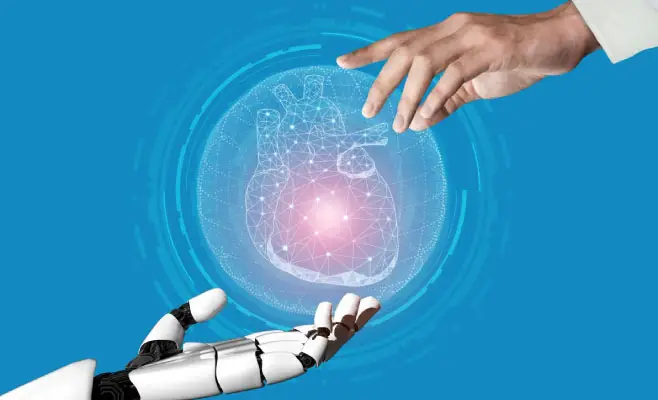The majority of our cells' energy requirements are met by simple sugar, glucose. There are many intricate processes in the body to ensure the glucose level remains within the normal range.
Most carbohydrates are converted to glucose and rapidly absorbed into the bloodstream when you eat. An increase in blood sugar causes the pancreas to produce and secrete the hormone insulin to regulate blood sugar in the normal range.
Diabetes Mellitus
Diabetes mellitus is a condition in which the blood glucose levels are abnormally high because the body is either not producing enough insulin or unable to use the insulin produced.
Typically, blood sugar rises post-meal and drops in 1 to 2 hours, whereas the blood sugar levels in people with diabetes may remain elevated for several hours.
There are two main types of diabetes - type 1 diabetes and type 2 diabetes.
Type 1 diabetes
- An autoimmune condition where one’s body attacks and destroys the insulin-producing cells of the body.
- Require insulin injections.
Type 2 diabetes
- One’s body does not produce adequate insulin or where the cells do not react to insulin.
- It can be prevented with lifestyle and behavioural changes.
- Develops over the years and usually occurs in adults, although it’s becoming more prevalent among children and teens.
Read on for answers to some of the commonly asked diabetes-related questions.
7 frequently asked questions about Diabetes Mellitus
1. What are the symptoms of Diabetes Mellitus?
Signs and symptoms of diabetes include:
- Intense thirst.
- Frequent urination, particularly at night.
- Unexplained weight loss.
- Increased appetite.
- Fatigue.
- Slow-healing wounds.
The symptoms of Type 1 diabetes may develop rapidly over days and weeks.
In contrast, those with type 2 diabetes may not be aware of their condition as the symptoms may only be evident later.
2. What are the causes of Diabetes Mellitus?
Insulin, a hormone produced by the pancreas (a gland behind the stomach), regulates high level of glucose in the blood.
Food that is digested is converted to glucose and rapidly absorbed into the bloodstream when you eat. An increase in blood sugar causes the pancreas to produce and secrete insulin to absorb glucose. Without insulin, glucose cannot be broken to produce
energy.
In diabetes, your body is either unable to produce enough insulin or use the insulin produced.
3. What are the risk factors of Diabetes Mellitus?
Certain factors increase a person’s risk of developing diabetes.
Risk factors for Type 1 diabetes:
- Family history of type 1 diabetes (genetic predisposition).
- Younger age – higher likelihood of being diagnosed as a child, teenager, or young adult.
Risk factors for Type 2 diabetes:
- Family history of type 2 diabetes.
- Overweight.
- Unhealthy diet.
- Physically inactive.
- Smoking.
4. Do people with diabetes have sugar present in their urine?
Normally, when blood sugar (glucose) rises to a level above 0.25mg/ml in the blood, sugar will appear in the urine. This condition is known as glucosuria.
5. Are people with diabetes restricted from consuming sugar?
Diabetes is not caused only by sugar consumption. However, you should still limit your intake of sugary beverages and sweets.
Understandably, people get confused about the role of sugary foods and beverages in diabetes. This may be due to the fact that the food you consume is digested and converted into a form of sugar known as glucose.
In diabetes, your body is either unable to produce enough insulin or use the insulin produced. Therefore, the excess glucose remains in the blood and your blood sugar level increases.
6. Can insulin cure diabetes?
Insulin does not cure diabetes; it is used to treat diabetes. People with type 1 diabetes are required to inject insulin as their body is unable to produce insulin.
On the other hand, type 2 diabetes can be treated with oral medications but may also require insulin, particularly if other medications are not effective at maintaining your blood sugar levels within a healthy range.
7. Are people with diabetes more prone to cold and other illnesses?
High blood sugars weaken the person's immunity and result in more frequent infections such as colds, skin infections, urine infections, boils, and abscesses. Hence, it is important to have good glucose control.
Complications of Diabetes Mellitus
1. Diabetic retinopathy
The most common eye condition associated with diabetes is diabetic retinopathy. It is one of the most common causes of blindness in adults in developed countries.
In diabetic retinopathy, the blood vessels in the retina (layer of cells that cover the surface of the back of the eye) are damaged due to high blood sugar.
This can cause the blood vessels to swell and leak, leading to blurry vision and eventually blindness if left untreated.
2. Diabetic neuropathy
Nerve damage caused by diabetes is known as diabetic neuropathy. High blood sugar can damage your nerves, and these nerves may stop sending messages to other parts of your body.
Nerve damage can result in various health problems ranging from mild to severe pain affecting your daily activities.
3. Diabetic nephropathy
Diabetic nephropathy refers to kidney problems due to diabetes. Normal kidney functions can be affected by diabetes. This can eventually result in chronic kidney disease and kidney failure.
4. Cardiovascular disease
Diabetes increases a person's risk of cardiovascular disease, which can lead to heart attack, stroke, or even death.
Prevention of Diabetes Mellitus
Currently, Type 1 diabetes is not preventable, but it can be treated by your doctor.
On the other hand, Type 2 diabetes is largely preventable with simple lifestyle modifications such as:
- Staying active and getting at least 30 minutes of exercise each day.
- Eating healthy:
- Increase intake of vegetables, fruits, and whole grains.
- Reduce intake of red meat, processed meat, and refined carbohydrates
- Maintain a healthy weight.
- Quit smoking.
- Reduce alcohol consumption.
Book an appointment at Gleneagles Hospitals
Early detection makes treating the condition more effective with appropriate treatment. The caring and multidisciplinary team of healthcare professionals are available for consultation and to provide the best care.
Get in touch with us to book an appointment at Gleneagles Hospitals today. We assure you the best possible
care tailored to your specific needs.









